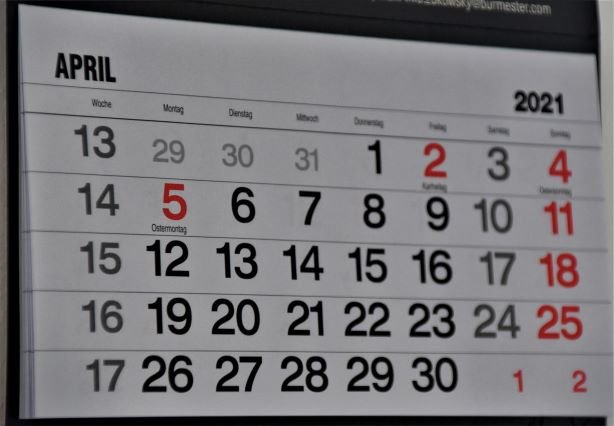When is it best to book an event?
Events of any size take a fair amount of planning, large events with multiple moving parts can appear overwhelming but with clear strategy and systems in place you can achieve great results, within achievable time limitations and within budget.
We have compiled some simple guidelines to assist you and your teams in forecasting for your company events calendar for the year ahead. Taking a step back to look ahead at the bigger picture provides us with the brain space to better understand when to commence planning, best times to book, and where to add value and avoid excess cost.
Here are some tips, tricks and suggestions that may assist you in approaching your next year of events with confidence.
Starting out?
The beginning:
Visualising the year ahead, then working through a simple and achievable timeline while considering the complexities of the event will enable you to section your planning into bite size portions.
First, create your yearly planner. Add in all the events that you envisage to take place.
Often, due to the nature of business planning around other events, holidays and seasonal activity you may find multiple events overlap. The best course of action during these early stages is to seek the expertise of Motive.
Discussing with one of our expert event managers the best approach for the year ahead will remove unnecessary and time consuming stress. We will support you in planning all event logistics, including assistance with location research and recommendations, budget planning and cost saving strategies, confirming all elements and executing a seamless and successful event.
The grid below is a guide to when seasonal events commonly take place throughout a Calendar year.
This information is based on events of over 80 delegates, but remember, the complexity of an event, plus the days onsite, will affect your timeline for planning. There is no one size fits all as every event has its own intricacies and personality, therefore we encourage events throughout the whole year.
As we have all learnt, things can change, often without much warning.
Being armed with this knowledge, remaining flexible in our thinking and
planning accordingly will take the sting out of overall project planning if things ever have to shift. To start let’s look at when seasonal events execute throughout the year (remember this is a rough guide if you have a major event in January. Fantastic!! it's all up to your company, your budget, and your needs).
The Decisions, The Decisions….
We see you looking at Quarter Three saying “why you so popular?!”
Three main factors come into play for every business when planning events and gaining maximum engagement:
1) Staff & Guest availability – Dates when the majority can attend an event
2) Hotel Seasonality - Planning events in low seasons provides better rates
3) School holidays and standard holiday periods
Events seasonality and demand works in reverse of commonly known holiday high seasons.
Traditional holiday periods, such as Christmas and Easter (December, January, April) along with school holiday months will affect availability and price.
Conference and events held over the shoulder and lower seasons enable greater ability for negotiations and availability of venues and accommodation providers, especially for large scale events.
M.O pro tip:
If you are cost conscious and looking to go to a new location, always think outside of the standard holiday periods.
Consider the Calendar above if you are thinking about changing your companies regular event dates. Some months may be more problematic than others when seeking availability whilst various seasonal factors will impact the price.
Fortunately, there are some sweet spots to plan your events schedule. Use the shoulder seasons to secure most economical rates with accommodation providers and mid-year to plan the larger events.
Keep in mind the Summer Months cater for "Wedding Season" so the more upmarket and unique venues and locations may be snapped up. Refer back to our points at the beginning and remember, our experts will guide you as to when best to book.
Lead up to planning
Strap on those trainers, as we know, planning an event is a marathon and not a sprint. Planning well ahead enables you to gather more diverse and interesting options to fit your budget with room to negotiate on rates and dates.
Good practice is to plan in blocks of three month allotments, from the event start date. (ie: event is in September, Planning starts minimum June for small events, up to six or 12 months for larger events with more complex planning)
Always allow contingency time for those unforeseeable hold ups, hassles and hiccups along the way.
MO-Tip:
If there is a particular destination or venue you are really enthusiastic about, especially if in a region or city with limited space – book your venue well in advance (even up to one year out).
Remember, discuss the options around potential date changes so that these can be included in any venue agreements.
Hurdles to consider when planning your event schedule:
Below is a basic guide to an event planning timeframe, with the three month lead in time we suggested. We have included a few MO-tips to bare in mind during your initial decision making for when to hold your event:
Impact to your business:
What is the impact of removing all your team for an event, for one whole day or multiple days?
Is this peak season for making sales?
Is the production team in full swing and working to complete projects based on deadlines?
Think about the impact on the business before you confirm the dates.
Who are you inviting / expecting at your event:
Gain a good understanding of who you require or wish to have at your event.
How are you providing support for single parents or people that need additional requirements while they are away?
It is best not to book over a school holiday half term if you are aware a portion of the group are single parents.
Know your attendees! The pressure of attending and finding support for children will impact engagement and connection. Avoid additional stress and create an easy journey for your attendees.
Research your location:
Start by searching for major events that may be on at your destination throughout the year ahead. Festivals, shows, concerts and regional holidays are often booked well in advance, investigate what is happening in the area over the same dates you are considering, as this may impact on your event and cost.
Give yourself time:
Give people more time than you may think they require to make decisions.
We have a saying that managing events is like herding cats, especially when it comes to a large group event. The more time pre-event you have, the more communication you can have with attendees.
You may think, one mail out advising guests of an itinerary will suffice – think again!
You may think, everyone will understand what details I need from them in order to confirm their attendance.. think again!
Allow for multiple prompts to get the message across and schedule time for individual attendee questions.
Take care out there and remember...







